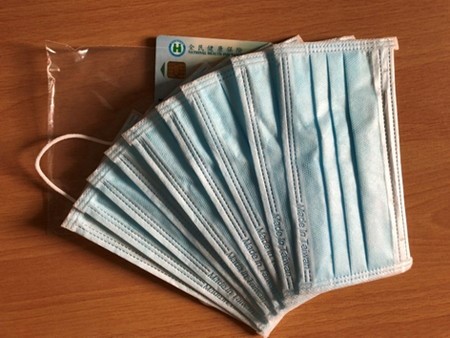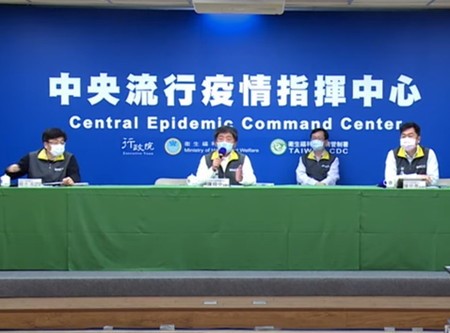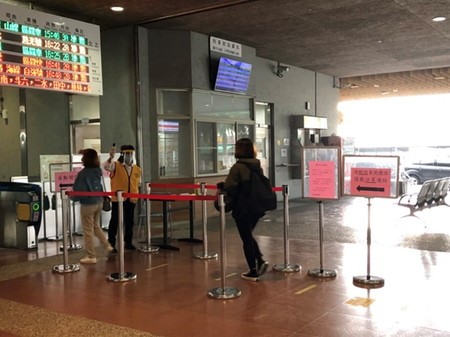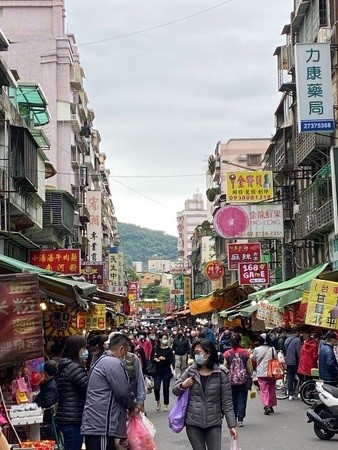【20-23】COVID-19の影響:ある台湾人の観測
2020年6月05日 Tai-Ting Chen(さくらサイエンスプラン(SSP)同窓生)
科学技術振興機構(JST)中国総合研究・さくらサイエンスセンター(CRSC)では、2014年度より日本・アジア青少年サイエンス交流事業「さくらサイエンスプラン(SSP)」を実施し、科学技術交流を通じてわが国とアジアを中心とした各国・地域との連携・協力関係を深めてまいりました。各種報道の通り、現在、世界中で新型コロナウイルス感染症の流行が拡大しておりますが、本コーナーでは「さくらサイエンスプラン」に参加している各国・地域の関係機関・関係者より現地の新型コロナウイルス感染症について、その状況や対策等をリポートします。
台湾疾病管理センターで最初に確認された新型コロナウイルス(COVID-19)の症例を発表してから97日経ちました。本文を書いている時点で、6例の死亡例と275例の回復例を含む、合計429例の確定例が報告されています。台湾政府は、新型コロナウイルスのパンデミックの課題に取り組むために、戦略的な展開かつ迅速な対応を実施してきました。
個人による健康管理は感染予防と病原体の伝播阻止において、重要な役割を果しますが、マスクを皆に行き渡らせるため、また公正な購入機会を確保するために、政府は各界に呼びかけ、マスクチームを編成し、高品質のフェイスマスクを全力で製造させました。現在、人々はマスクを購入する際には、薬局で国民健康保険証を提示するか、eMaskというアプリを使ってオンライン予約することが出来ます。現時点ではこの方法を使って台湾人1人当たり、14日間ごとに9枚のマスクを購入することができます。マスクの値段は1枚当たり5台湾元(US$0.17)です。さらに、政府は毎日、記者会見を開き、新型コロナウイルスの感染状況を人々に報告し、また、個人的な衛生環境の維持と健康習慣の改善についても伝えました。これらの頻繁な政府の公式発表によって、人々が政府に対する信頼を高めるだけでなく、噂や誤解によるパニックを回避しています。

国民健康保険証を用いて購入したマスク
その後、台湾はCOVID-19ウイルスの拡散のリスクを減らすための効果的な手順を実行しました。台湾に戻る旅行者は、14日間の家庭での検疫の対象となります。政府は健康管理システムにより、確認された感染者と接触した人を特定するために接触追跡システムを構築し、自宅での隔離期間を14日間とするよう義務付けました。検疫と接触者の追跡により、中央政府と地方政府は散発的および集団発生を制御するための努力を惜しみません。
さらに、政府は潜在的な感染連鎖を防ぐために公共の場所における混雑を管理する措置を課しました。市民は屋内空間において少なくとも1.5メートル、屋外では最低1メートルのソーシャルディスタンスを保つように促されます。病院、交通機関、政府機関、観光スポットなどの公共スペースに入るときは、体温チェック、手洗い、マスクの着用が必須となります。

連日の記者会見で感染状況などを発表する台湾政府高官
COVID-19のパンデミックは確実に台湾で広範囲に影響を与えましたが、そのための制限またはポリシーは、流行の状態に応じて決められる必要があります。私も常にフェイスマスクを着用し、屋内での集会を回避しています。ウイルス感染のリスクを最小限に抑えるために、私の家族はほとんどの台湾人と同じように、休日はなるべく家にいること、持ち帰り用の食事を注文すること、自宅で料理をすること、そして、オンラインで買い物をするようにしています。その結果、一部のデパート、劇場、レストラン、エンターテイメントセンターでは、営業時間が短縮され、閉店に追い込まれている所もあります。社会的イベント、スポーツ大会、経済活動はキャンセルまたは延期されています。

検温される電車の乗客
これらの消費パターンとトレンドの構造的変化が、観光、運輸、ホテル、小売業界、飲食業界などのサービス産業にかなりの経済的損失を引き起こしました。ウイルスの発生状況とそれに対する治療方法の研究開発が不確実であるため、金融ビジネスや投資環境が弱体化します。COVID-19の影響を緩和し、産業を活性化するために、政府は財政支援と資源分配の対策を実施しました。最後に台湾政府、医療機関、研究所、民間企業、一般市民が協力し、COVID-19パンデミックがもたらした前例のない社会の混乱に対抗して行かなければなりません。

一般の商店街は平常営業しているがマスクを着用
(2020年4月26日)
※本稿はさくらサイエンスプラン同窓生からの寄稿文を中国総合研究・さくらサイエンスセンターが日本語訳したものである。
●英文オリジナル
The impact of COVID-19 in Taiwan: a Taiwanese Observation
It's the 97th day since the first confirmed case of coronavirus disease 2019 (COVID-19) was announced by Taiwan Centers for Disease Control. At the time of writing, a cumulative total of 429 confirmed cases, including 6 death cases and 275 recovered cases, have been reported. To address the challenge of novel coronavirus pandemic, Taiwan government has conduct strategic deployment and swift response.
Firstly, self-health management plays a crucial role in preventing infection and halting transmission. Government organized national mask team that produces sufficient and qualified face masks desperately to ensure fair chance to buy masks. Presently, each Taiwanese can purchase 9 masks every 14 days by showing national health insurance card or making online reservation on eMask cyber system, at only around US$0.17 per mask. Moreover, daily press conferences are held to report current situation of COVID-19 pandemic and to educate citizens about personal hygiene and health habits. The conferences not only enhance the public trust on government, but also avoid the panic owing to rumors and misunderstandings.
Then, Taiwan carried effective procedures to reduce the risk of spreading COVID-19 virus. Travelers returning to Taiwan are subjected to 14-day home quarantine. The healthcare system set up contact tracing system to identify people who contacted with confirmed cases and required them to take obligatory 14 days period of home isolation. By quarantine and contact tracing, central and local government spare no effort to control sporadic and clusters outbreak.
In addition, government imposed the crowded control measures at public place to prevent potential infection chain. Citizens are urged to keep social distancing at least 1.5meters in indoor space and 1 meter outside. Mandatory temperature check, hand sanitation and mask wearing are required when entering public space, such as hospitals, transportation stations, governmental institutes, tourist spots and so on.
COVID-19 pandemic indeed affected to a wide extent in Taiwan. The related restrictions or policies regarding COVID-19 pandemic remain to be decided depending on epidemic state. In terms of my experiences, I have to wear face mask every time and everywhere and avoid indoor gathering situation. To minimize the risk of COVID-19 virus transmission, my family, just like most Taiwanese, prefer to stay home as possible on holiday, order take-out meals or cook at home, and shop online instead in stores. As a result, some department stores, theaters, restaurants and entertainment spaces are forced to shorten business hours or even close. The social events, sport competitions and economic activities are cancelled or postponed.
The structural changes of consumption pattern and trend cause considerable economic loss in service industries, such as tourism, transportation, hotels, retails, restaurants and catering. Due to uncertainty of virus outbreak and medical development, the financial business and investment become weak. To mitigate the effects of COVID-19 and revitalize industries, government conducted countermeasures in financial support and resource allocation. Taiwan government, medical institutes, laboratorial units, private sectors, and citizens work together and devote effort to against unprecedented trend of COVID-19 pandemic.
Tai-Ting Chen
2020/4/26